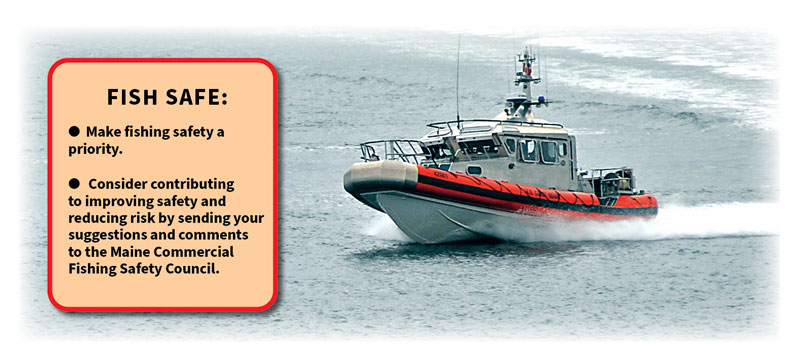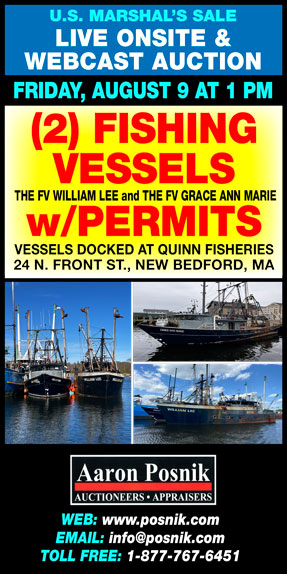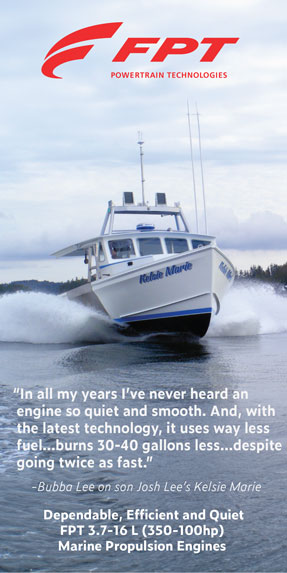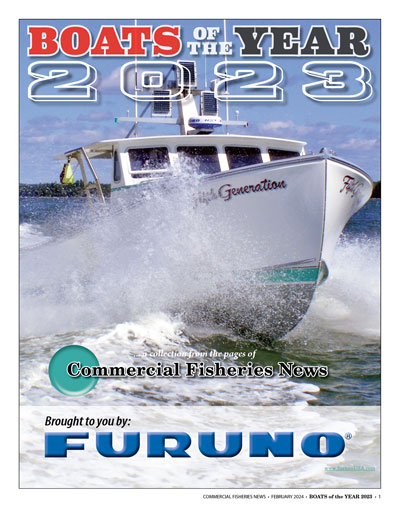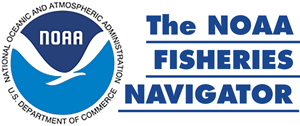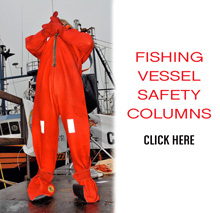On behalf of fishing safety: the Maine Commercial Fishing Safety Council
Maine has a special council that is committed to fishing safety. The Maine Commercial Fishing Safety Council (MCFSC or the council) is a voluntary council sponsored by the Maine Department of Marine Resources (DMR). The council was established by the Maine state legislature under former Governor Angus King in response to a recommendation from a Commercial Fishing Safety Task Force.
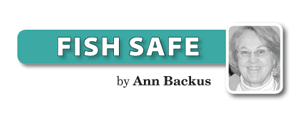
In full disclosure, I am a member of MCFSC, and am writing this article to a.) let you know of our existence, and b.) to encourage you – the fishermen of Maine and the eastern seacoast – to send your suggestions and comments to the council.
In terms of membership, the bylaws of MCFSC call for nine members, and all members who are fishermen must hold a Maine fishing license. The bylaws specify: a member from the Lobster Advisory Council; a member of the Sea Urchin Zone Council or the Scallop Advisory Council; three members who are commercial marine harvesters; an educator; an expert in marine safety equipment; a spouse or domestic partner of a license holder; and a member of the public.
As of this writing, we are seeking the following members: Lobster Advisory Council member; a sea urchin or scallop fisherman; and a commercial harvester.
The purpose of MCFSC (as spelled out in the bylaws) is to give the Commissioner of Marine Resources “information and advice” related to “a.) minimum safety equipment, training, and operational standards; b.) community-based education programs that provide practical safety training and fisheries-specific safety training; an outreach program to promote the culture of safety; and opportunities to minimize the costs and seek alternative funding sources … to minimize the financial impact of safety requirements.”
MCFSC may also respond to requests from the commissioner. The council is required to submit an annual report to the commissioner by October 1 of each year.
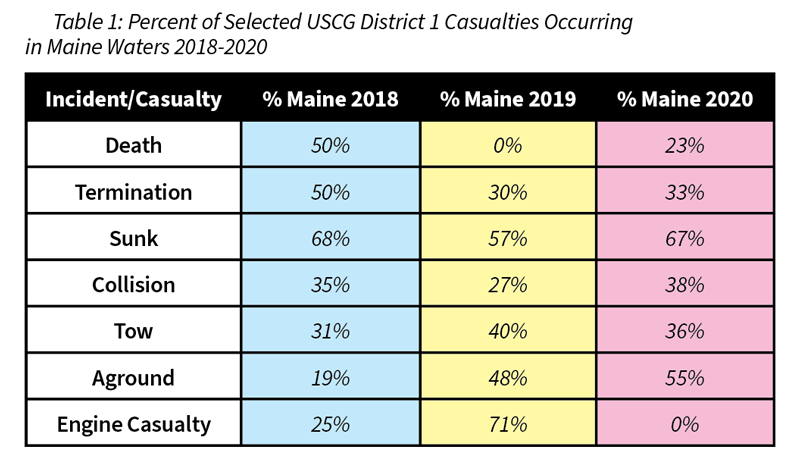
An example of MCFSC’s work from several years ago is the development of a Tender Course Test for persons serving as dive tenders for hand harvesters – specifically urchin divers. In developing this test, the council was responding to a period of time in which hand harvesters were picking up untrained persons at the docks to serve as dive tenders. During this time, we noticed an increase in urchin-fisher fatalities.
MCFSC’s work resulted in the requirement that dive tenders a.) have (and maintain) a current CPR and First Aid certificate, and b.) have taken the tender safety course in order to be eligible for a dive tender license.
With respect to current issues, the Council has discussed the Marine Mammal Protection Act, and the issues around rope marking, weak points in rope, traps per trawl and rope-less fishing. We have discussed the safety concerns of fishermen related to the anchor lines and power cables of wind farms; and the scallop drop block. These conversations are reported back to the DMR in the form of meeting minutes and the annual report.
In June of 2021, MCFSC members reviewed US Coast Guard District I data and became concerned about the increase in the number of disabled vessels, the number of engine casualties, and the number of medevacs in District 1. Further analysis showed that casualties ascribed to Maine waters accounted for 30% of the District I casualties for 14 casualty types in 2018, 28% in 2019, and 27% in 2020.
As these numbers were tallies of 14 casualty types (such as death, medevac, aground, fire, pollution, engine casualty, etc.), we decided to look deeper into what was driving these numbers. As the table shows, from 31% to 68% of the total District I casualties of tow, collision, death, termination, and sinking happened in Maine waters in 2018. A similar range of percentages was attributed to selected Maine water casualties in 2019 and 2020.
On reviewing these and other data, MCFSC became concerned that we don’t have a Maine fisheries-specific incident database, and we don’t capture near-misses or those incidents that are not reported to District I. This realization has prompted the council to create a simple survey for Maine fishermen. This survey asks for comments on 1.) situations encountered by fishermen that education and additional information might help address, and 2.) any new risks to safety that novel vessel layouts or new fishing operations may pose. MCFSC is currently developing the dissemination plan for this survey.
Clearly, there are a number of questions that arise from the data in the table. Examples include:
• How can we cut down on the number of terminations?
• What is driving the high incidence of sunk vessels – a portion of which, by the way, happen at the dock or at anchor?
• How can we address the high percentage of tow and aground casualties?
And, most importantly, how can we ensure that every fisherman returns home at the end of the day?
MCFSC meets quarterly for formal meetings and has been holding workgroup meetings monthly. We welcome suggestions from the fishing community, including comments related to emerging issues. Please feel free to email me your suggestions and comments for the council.
Ann Backus, MS, is the director of outreach for the Harvard School of Public Health’s Department of Environmental Health in Boston, MA. She may be reached by phone at (617) 432-3327 or by e-mail at <abackus@hsph.harvard.edu>.
